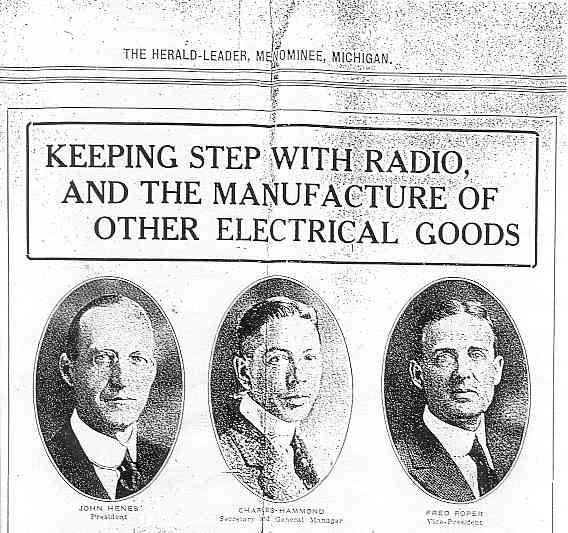

A lot of youngsters, scattered all over the world, conscientiously working for the advancement of a great art, not satisfied until the voice of their transmitters have reached to the distant parts of the earth, are contribuiting (sp) factors to the success of one of Menominee’s great industries. Thousands of these enthusiasts are depending upon Menominee for the apparatus of efficiency with which to further their ambition to make a record for net circuits and long distance.
These are the radio enthusiasts. But they would mean little to us if
Menominee did not have the capital, brains, and experience to meet the
situation.
The
Signal Electric.
So fortunately, we have the Signal Electric company which makes the things that make amateur wireless operators in all parts of the world proud of their proficiency.
Fully cognizant that the future holds much in store for those that are
“hooked up” commercially or industrially with radio communication, the
Signal company is preparing to meet the vastly increasing demand for instruments
that is bound to come.
Makes
Superior Products
Pushed almost to the limit at the present time for radio instruments, the feature of its various products, this Menominee plant is, at the same time, establishing a record for superiority that is bound to be reflected in future business and which will be maintained by the energies that are today presiding over the destinies of what may head the list of Menominee’s industrial institutions.
The moving spirit in the Signal Electric company is Charles E. Hammond,
who, before he became a part of this concern was employed in the capacity of
auditor for the Tideman Electric company, which, for many years prior, were
prominent in the electric field, being large producers of fans and motors.
Hammond
Takes Option
Approaching the time when Henry Tideman moved to Cairo, Ill., Mr. Hammond took an option on the Menominee plant, planked down some cold cash and went scouting for other capital to complete the deal. The necessary quantity of the circulating medium was not forthcoming, and Mr. Tideman very kindly agreed to extend the option for 30 days. Before the extended time had expired, Charlie had the coin of the realm. Tideman moved out on October 10, 1919, and the following morning the Signal Electric company was operating, and shipping goods, with lots of orders on the books.
Slump
Come Along
The company went along with a fair wind throughout 1920, but during the first nine months of 1921, quite a slump was experienced and weathered. The force of help was reduced to 48. But by the same energy that has always characterized the Signal Electric, a business was worked up until 200 hands were employed, and the plant operating 20 hours a day, with further extensions absolutely necessary to meet the demand for its products.
In the month of March, of the present year, the company had three
thousand dollars more business on the books than the entire volume of the year
1921.
While this remarkable gain in business is the result of the wide usage of
radio almost to an extent that people today regard it as almost commonplace, yet
it should be understood to be in its infancy, and thus the brilliant future of
this splendid Menominee enterprise is easily forecasted.
New
Machinery Installed
During the past season, $19,000 worth of new machinery has been installed and all paid for in cash.. Other new machinery is imperative to keep pace with the new influx of business. Some of the new machinery is to be installed in the south end of the building formerly occupied by the Art Crafts company, and it will still be necessary to erect new buildings to provide additional floor space that looks like an absolute necessity in the very near future.
The activity in all departments is one of the first impressions the
visitor gets on entering the plant. Expert mechanics will be seen at very lathe,
drill presses, special machines, etc., working at top speed manufacturing the
various parts of the products. This
is on the first floor..Going upstairs, craftsmen and young women with skilled
hands will be seen busy at some special department of finishing.
On through the varnish room; to the department where the beautifully
finished cabinets are hand rubbed; to the enameling room where metal parts are
baked under a 360 degree heat; to the winding of silk-covered copper wires
around the radio tuning tubes, is a trip of unusual interest.
Makes
Own Tools.
A thoroughly equipped tool making department is maintained where new tools are constantly being turned out, and those in daily use are sharpened. A special vault contains tools of various kinds, the value of which runs into many thousands of dollars. Each tool is carefully labled and indexed.
A laboratory is located near the main office on the second floor where
engineers are constantly at work developing new instruments, and in which is
located the wireless testing station, where each radio instrument is given a
thoroughly practical test before being sent to market.
Other
Signal Products
While radio instruments predominate, among the several other products, electric bells, telegraph instruments, medical batteries, and small motors are manufactured in greatb numbers and are being shipped to all parts of the world. Bells, which are second in production, embrace all sorts from house bells to fire alarm gongs.
The name “Signal” will be found in the Orient as well as in the
occident, orders coming frequently from China and Japan; from Melbourne,
Australia; from New Zealand, and all parts of Europe.
Signal Electric maintains offices in Hong Kong, China, Japan, London,
three in Canada, besides in advantageous distributing points in the United
States.
The company is capitalized
at $150,000 with $125,000 in use, $25,000 in the treasury, and not a share is
for sale. Every share is held
locally. It is a 100 per cent Menominee enterprise, employing almost 200 people.
Two
New Additions
The remarkable growth of the business of the Signal Electric company has necessitated two additions to the plant-one of 2,500 square feet of floor space and another of 836 square feet. Both of these additions are of brick construction.
The company maintains a radio station adjoining its main offices and is
now preparing to broadcast musical programs and stock reports that will be
received daily by wireless. This
will prove of great interest and benefit to those owning radio sets in the local
territory.
Gets
After Business
Like Mr. Hammond, who grasped the opportunity here in 1921, the Signal Electric company is losing no opportunity to pick off the business today by being on the ground with a representative where business breaks.
The officers are John Henes, Jr., president; Charles E. Hammond,
secretary-treasurer, and general manager.
The officers, with the following, constitute the directorate: Charles H.
Law, Ralph Wells, George L. Hastings, and Alfred Henes.
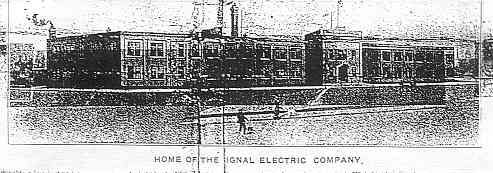
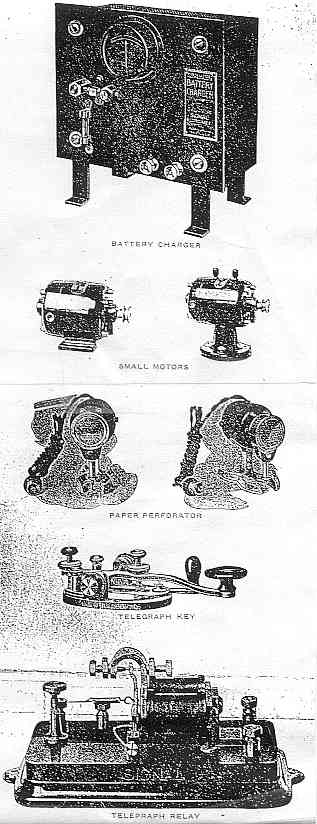
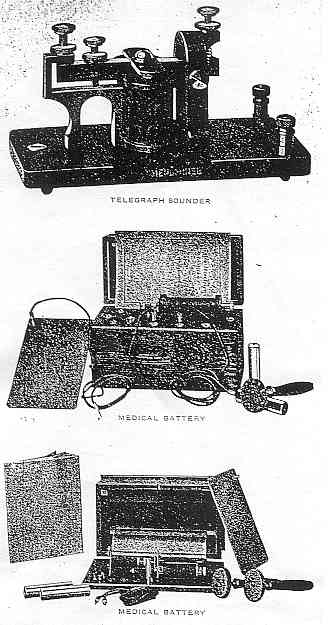
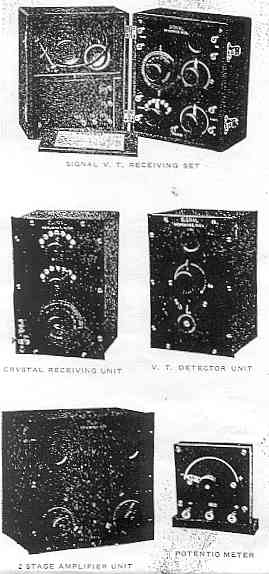
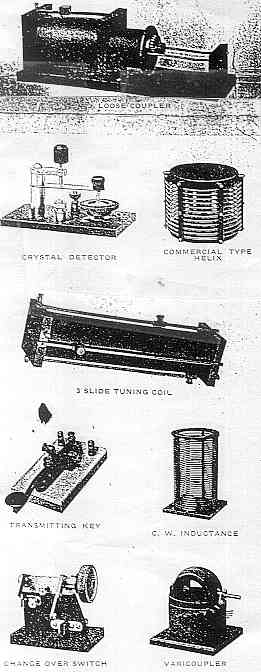
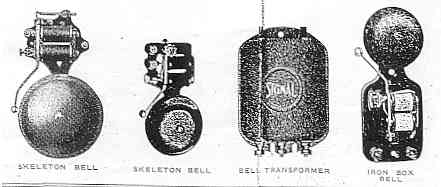
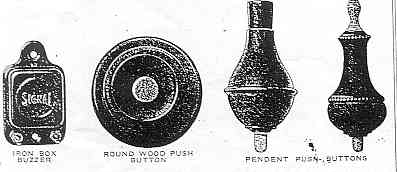
History of Signal Electric Company
The Spark Key Project, more information on Signal and other keys